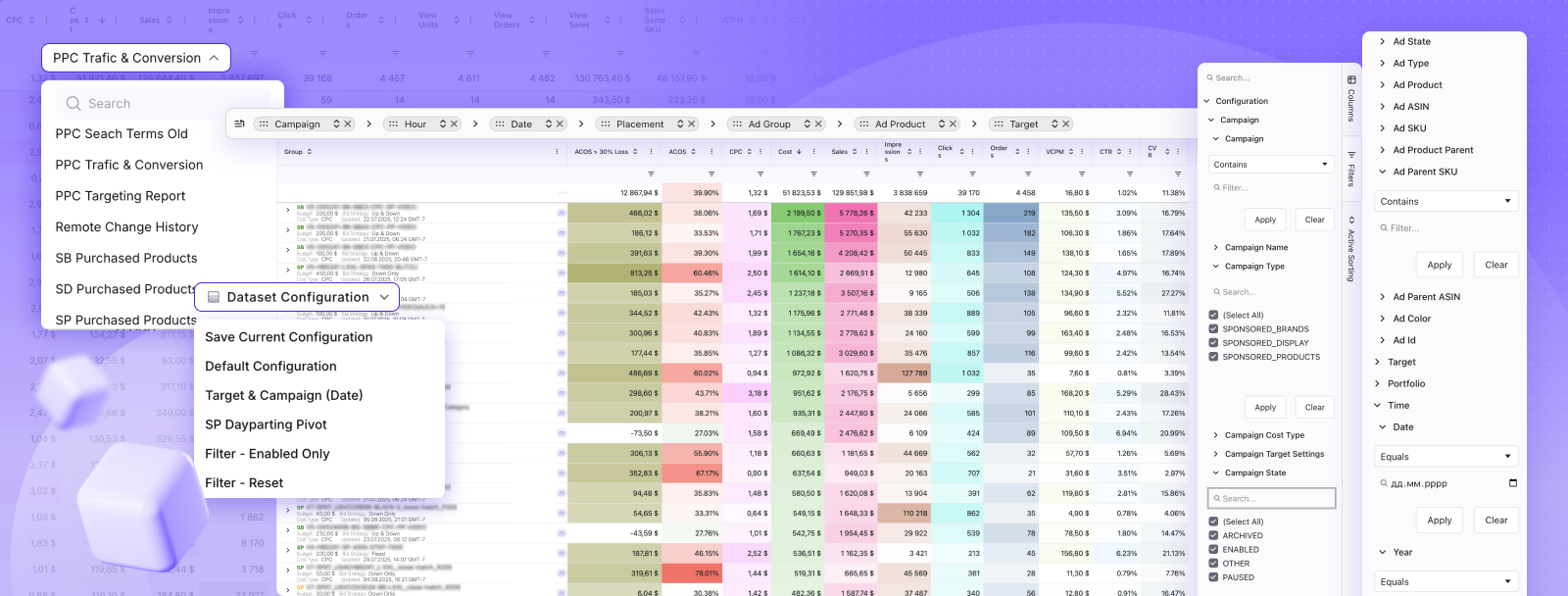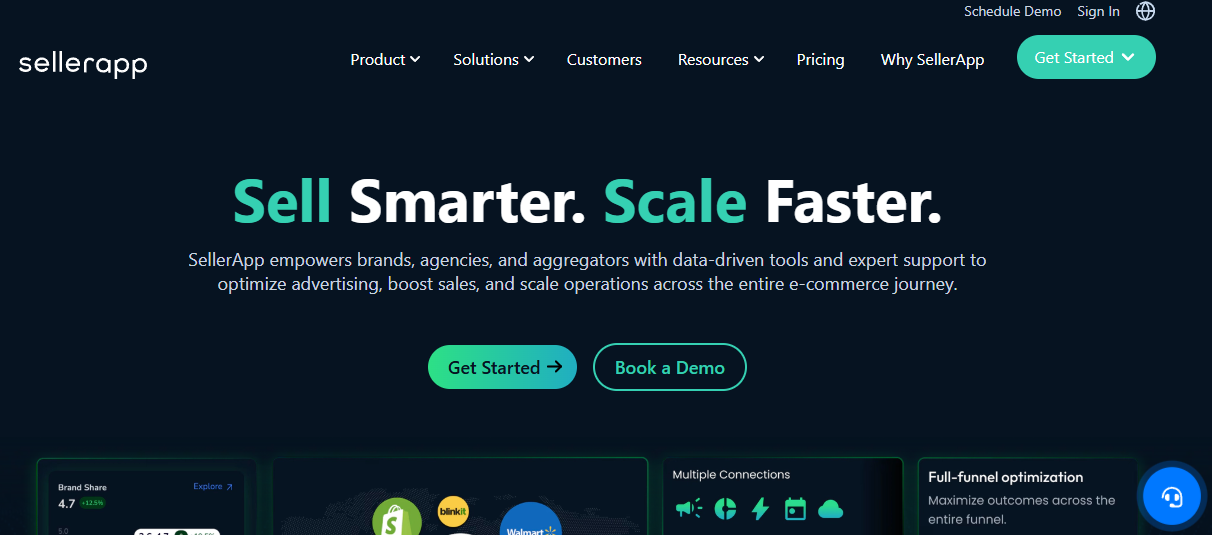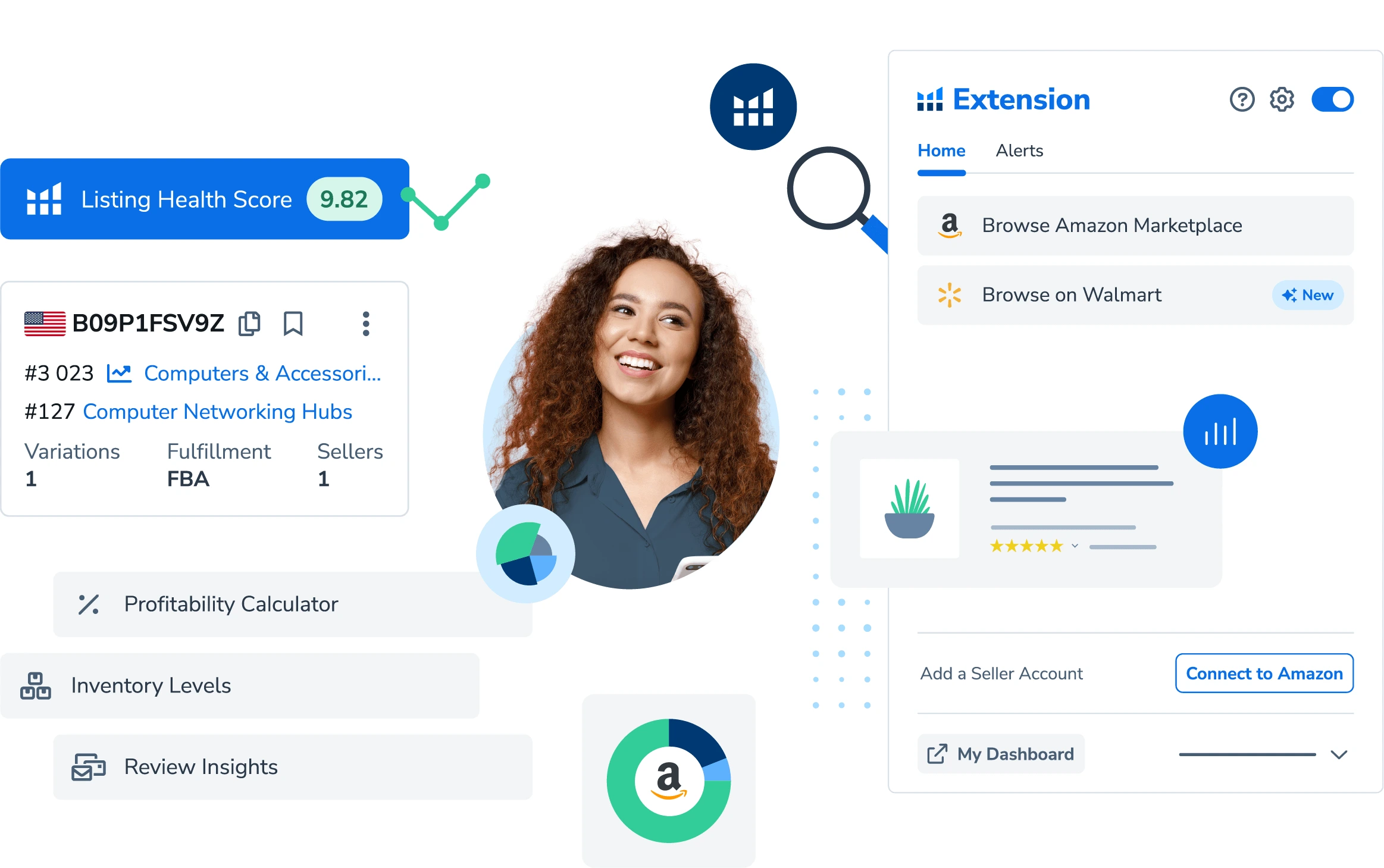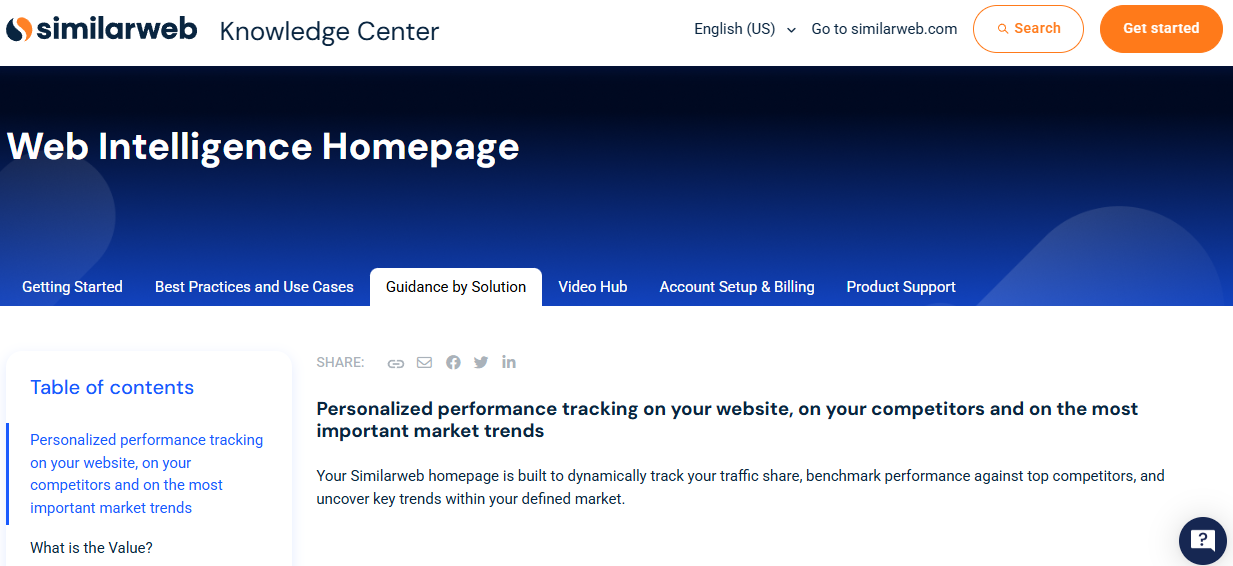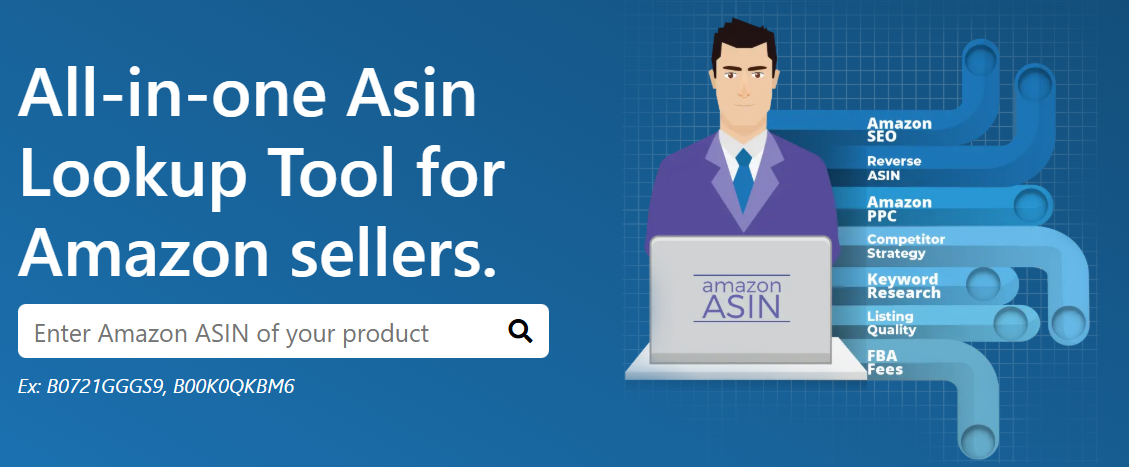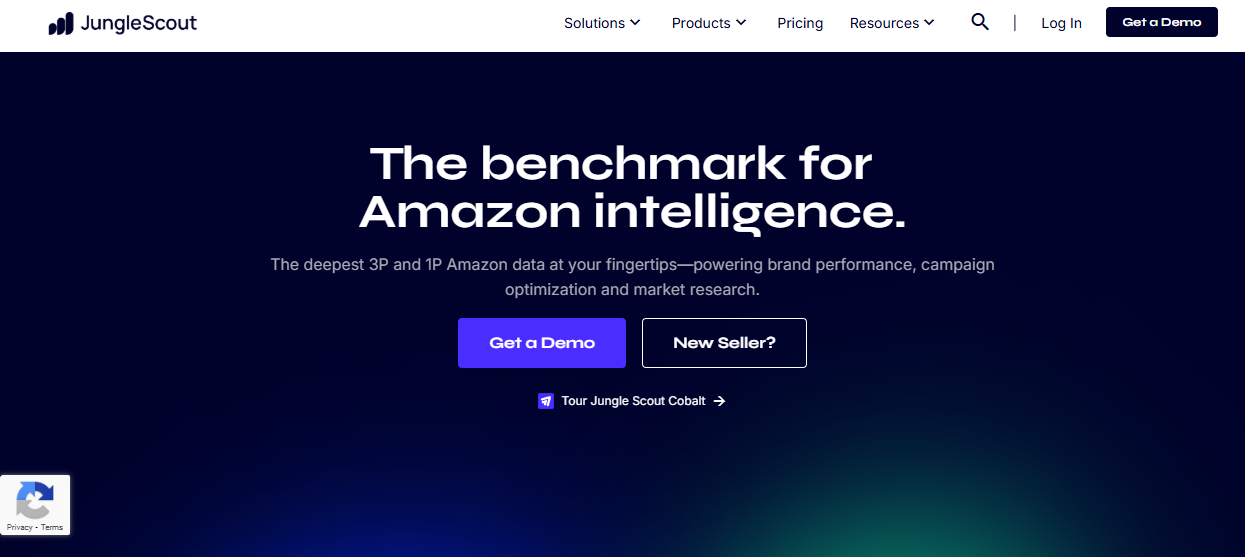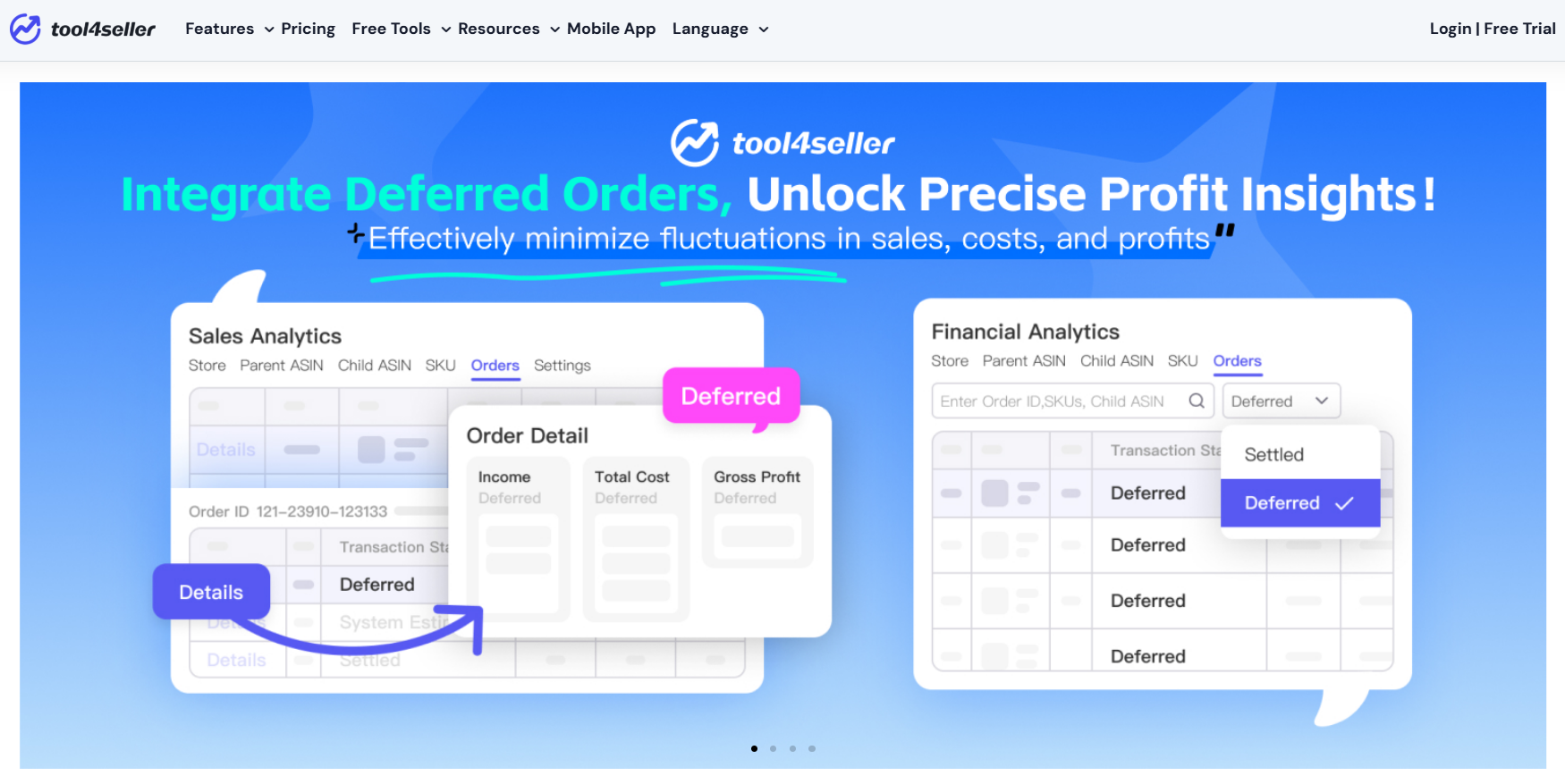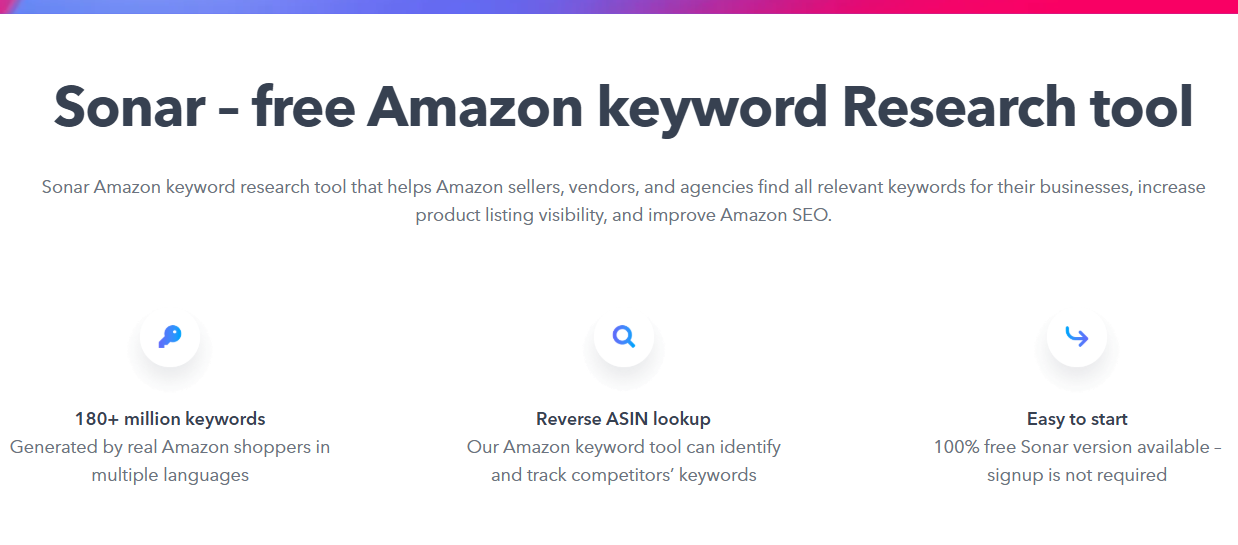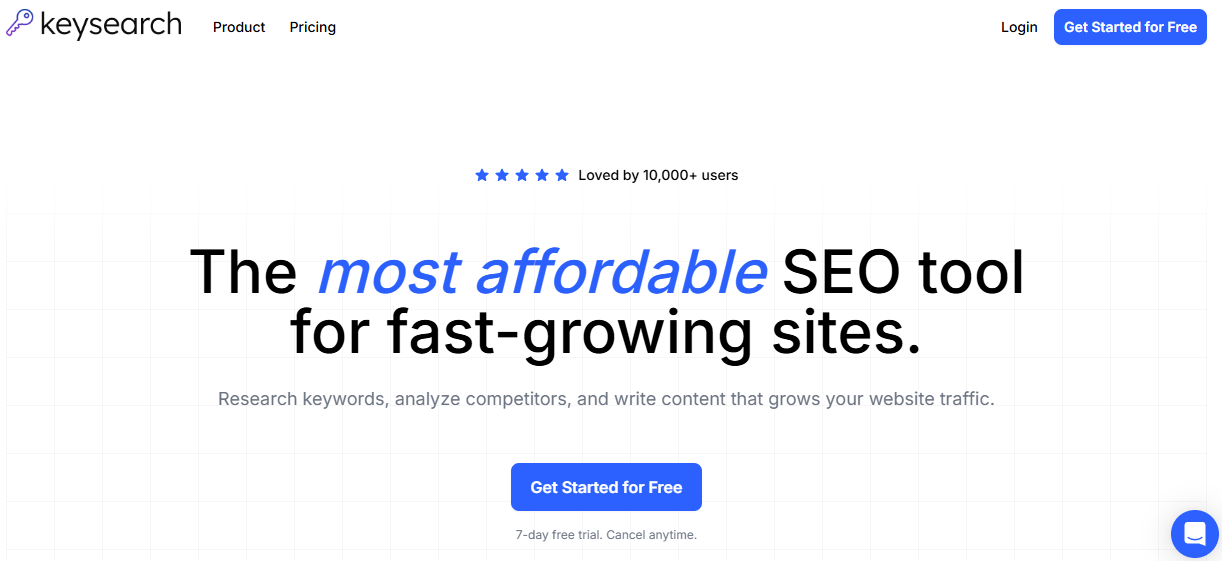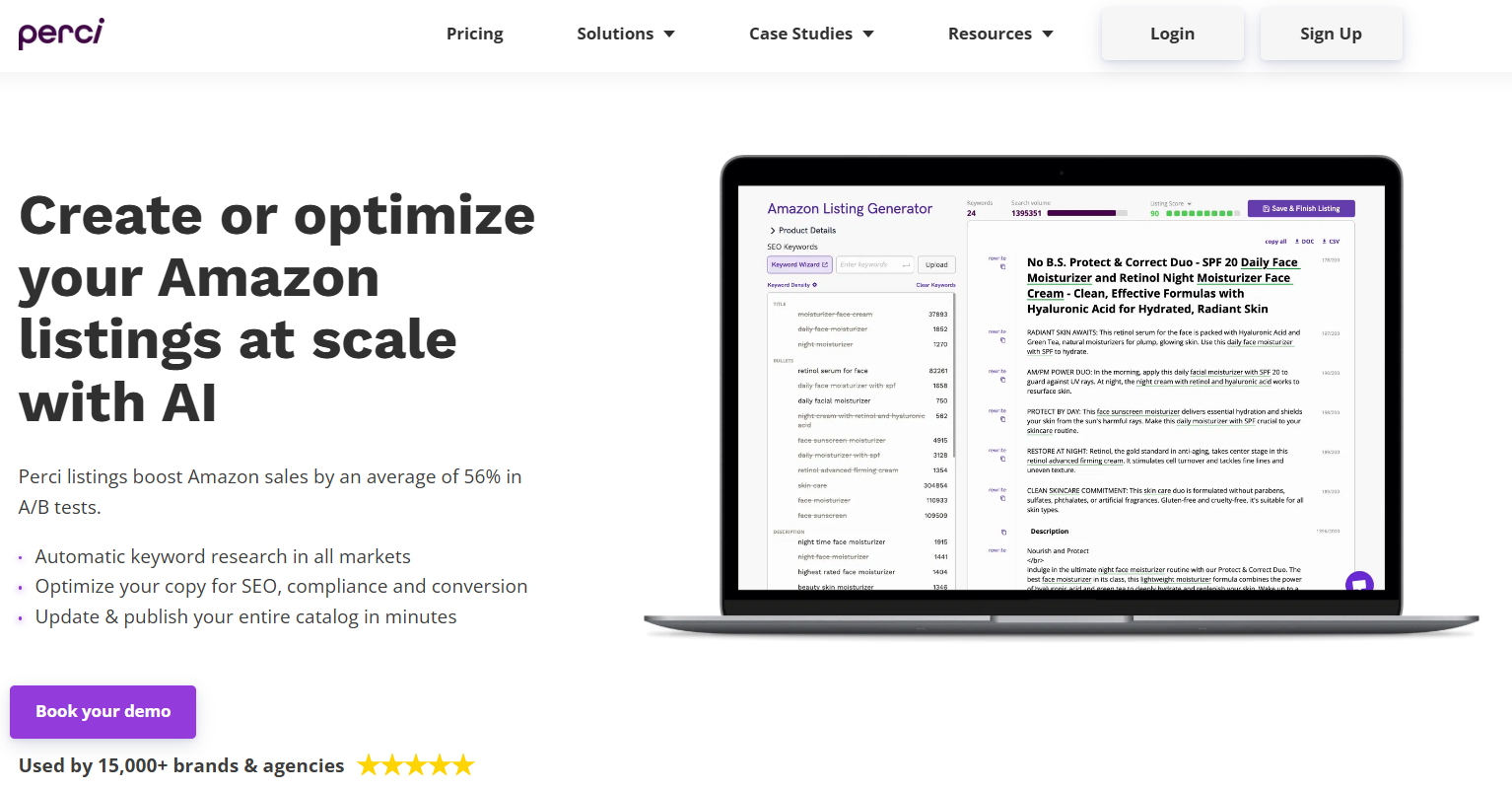Top Amazon Backend Keywords Tools to Boost Product Visibility
Most Amazon sellers spend hours tweaking titles, bullet points, and descriptions, but the real magic often happens behind the scenes. Backend keywords, those hidden search terms buried in your listing’s metadata, can quietly lift your product’s reach without changing how your page looks. The challenge? Amazon doesn’t show you which terms work, and guessing rarely pays off. That’s where backend keyword tools come in. They dig into search data, competitor listings, and customer behavior to reveal the words that help products show up more often, and sell more.
In this list, we’ll walk through a few reliable tools that make finding and managing backend keywords easier, clearer, and a lot less of a guessing game.
Optimize Backend Keyword Strategy With WisePPC Analytics
At WisePPC, we help Amazon sellers understand their advertising performance in a way that’s actually useful. Backend keywords are a powerful part of that story – they can quietly influence visibility and conversions, but only if you know how to measure and manage them. Our platform gives you the tools to do exactly that.
We combine automation and advanced analytics so you can track which backend terms drive sales, where ad spend brings real returns, and how performance changes over time. With precise filters, long-term data storage, and visual metrics, it’s easy to see trends that Amazon’s default dashboard simply hides. You can compare historical results, adjust bids or budgets in seconds, and make confident decisions backed by data, not guesswork.
Backend keywords work best when they’re part of a bigger strategy, and that’s where we come in. WisePPC helps you connect the dots between your keywords, campaigns, and results, so every move you make is grounded in real insight, not just intuition.
Top Amazon Backend Keyword Tools
Finding the right backend keywords can quietly shape how well your products perform on Amazon. These hidden search terms help listings appear for more queries, even when the exact words aren’t visible to shoppers. To manage them effectively, sellers rely on dedicated tools. Some designed for deep keyword research, others focused on cleaning, formatting, or byte counting.
Below is a collection of Amazon backend keyword tools that cover everything from discovering long-tail phrases and competitor insights to keeping your keyword fields compliant with Amazon’s byte limits. Each offers a slightly different angle, but all aim to make your keyword management more accurate and less time-consuming.
1. SellerApp
SellerApp offers a practical keyword research tool designed to help Amazon sellers uncover both visible and backend search terms that matter most to their products. It gives users a way to find the language customers actually use when searching and to identify gaps competitors might miss. The tool focuses on making keyword discovery more intentional rather than random, helping sellers choose words that align with real shopper intent.
Beyond just generating lists, SellerApp encourages ongoing keyword tracking and refinement. Users can monitor how their selected terms perform over time, compare their rankings against competitors, and spot new opportunities as buyer behavior shifts. It’s less about chasing trends and more about maintaining consistent visibility through informed keyword choices and understanding how those hidden backend terms contribute to search results.
Key Highlights:
- Suggests relevant keywords and hidden backend terms for listings
- Provides competitor keyword insights for better context
- Offers tips on relevance versus popularity when selecting keywords
- Includes keyword tracking to follow ranking changes and performance
- Helps identify long-tail and high-intent search phrases
Perfect For:
- Sellers optimizing listings for long-term visibility
- Small to medium Amazon stores that rely on organic traffic
- Teams needing a simple way to track and update backend keywords regularly
Contacts:
- Website: www.sellerapp.com
- Phone: +1-256-363-0567
- Email: [email protected]
- Address: 4819 Bryant Mdws Dr, Spring, TX 77386, United States
- LinkedIn: www.linkedin.com/company/sellerapp
- Facebook: www.facebook.com/sellerapp
- Instagram: www.instagram.com/sellerapp_insta
- X (Twitter): x.com/SellerApp_Inc
2. Keyword Tool IO
Keyword Tool generates Amazon search terms using the platform’s autocomplete function, giving sellers a broad set of keyword ideas based on what real shoppers type in the search bar. It focuses on uncovering long-tail keywords and variations that are often overlooked but can help listings appear in more relevant searches. The process is quick and automatic, pulling hundreds of keyword combinations in seconds without the need for complex setup.
The tool is straightforward: you enter a seed keyword, select your Amazon marketplace and language, and receive a list of suggestions. Sellers can use these keywords in their product titles, bullet points, and backend fields to strengthen listing visibility. It’s especially useful for identifying patterns in how customers search globally, helping sellers refine their product positioning across markets without heavy manual research.
Key Highlights:
- Uses Amazon autocomplete to generate keyword ideas in real time
- Covers multiple Amazon marketplaces and languages
- Focuses on long-tail keyword discovery for better niche targeting
- Presents keywords in order of relevance based on Amazon’s algorithm
- Simple interface that requires minimal setup or technical skill
Perfect For:
- Sellers who want quick keyword inspiration without deep analytics
- Amazon FBA beginners or small sellers expanding product visibility
- Multi-market sellers optimizing listings across countries and languages
Contacts:
- Website: keywordtool.io
- Phone: +971 6501 2028
- Email: [email protected]
- Address: Essential Apps LLC. Sharjah Media City, Sharjah, UAE
3. Helium 10
Helium 10’s keyword tool, Magnet, gives sellers a structured way to explore backend and visible keywords that influence product ranking on Amazon. It combines competitive research with keyword filtering to help identify high-potential terms that align with both search trends and buyer intent. Users can input a keyword or ASIN and immediately access related phrases, including long-tail and low-competition opportunities that are easy to miss manually.
The tool also allows filtering by factors like competition level and relevance, helping sellers clean up large keyword lists efficiently. Combined with other features in the Helium 10 suite, it gives a fuller picture of how specific keywords perform across PPC and organic results. In short, it simplifies the process of turning raw search data into a clear plan for improving listings and backend keyword strategy.
Key Highlights:
- Generates related keywords from seed terms or ASINs
- Includes filters for competition, relevance, and keyword type
- Identifies long-tail and low-competition search phrases
- Integrates with other Helium 10 tools for deeper keyword tracking
- Supports backend keyword planning for both PPC and SEO use
Perfect For:
- Sellers who combine organic and PPC strategies
- Users managing multiple ASINs or large catalogs
- Data-oriented teams looking for structured keyword analysis
Contacts:
- Website: www.helium10.com
- Facebook: www.facebook.com/Helium10Software
- Twitter: x.com/H10Software
- LinkedIn: www.linkedin.com/company/helium10
- Instagram: www.instagram.com/helium10software
4. Similarweb
Similarweb’s Amazon Keyword Tool focuses on accuracy and real shopper intent. Instead of scraping data, it analyzes actual search behavior on Amazon, helping sellers understand what people type, click, and ultimately buy. It connects keywords with product clicks, enabling sellers to see which search terms lead to the most engagement.
The tool also includes AI-powered suggestions, category-level filtering, and trend analysis. Users can compare organic and paid visibility, explore what brands dominate specific searches, and export data for further use. It offers a clear picture of how backend keywords can influence discoverability and conversions across product categories.
Key Highlights:
- Provides real Amazon shopper search and click data
- Includes AI-generated keyword suggestions
- Connects keywords to top-performing products
- Offers insights into organic vs paid keyword share
- Allows export and API access for deeper analysis
Perfect For:
- Data-driven teams managing keyword strategy at scale
- Brands monitoring category and competitor performance
- Sellers refining backend and paid keyword combinations
Contacts:
- Website: www.similarweb.com
- Facebook: www.facebook.com/Similarweb
- Twitter: x.com/Similarweb
- LinkedIn: www.linkedin.com/company/similarweb
- Instagram: www.instagram.com/similarwebinsights
- Address: 6 E 32nd St, New York, NY 10016, 8 Floor
5. Amazon-ASIN Keyword Tool
Amazon-ASIN’s free keyword research tool helps sellers gather the right mix of long-tail and core search terms for their listings. It’s built to simplify how users collect and organize keywords that influence Amazon visibility, combining customer search queries, CPC data, and frequency of use. The process is straightforward and fast, making it easy to discover new keywords or validate existing ones.
The tool also guides users on how to use these terms effectively, whether in listings, backend fields, or PPC campaigns. It focuses on helping sellers build relevant keyword sets that reflect actual shopper intent and maintain visibility in Amazon’s algorithm.
Key Highlights:
- Generates long-tail and short search queries for listings
- Provides CPC and search frequency data for context
- Supports backend keyword collection and PPC use
- Updated frequently for current keyword trends
- Offers simple keyword generation in real time
Perfect For:
- Sellers optimizing listings with minimal setup
- Beginners learning how to balance short and long-tail keywords
- Small sellers managing manual PPC campaigns
Contacts:
- Website: amazon-asin.com
- E-mail: [email protected]
- Facebook: www.facebook.com/amazonasin
- Twitter: x.com/amazon_asin
- LinkedIn: www.linkedin.com/company/amazon-asin
6. UberSeller
UberSeller offers a lightweight tool for managing backend keywords efficiently. It helps sellers clean, format, and prepare keyword lists before uploading them to Amazon Seller Central. The tool can remove duplicates, count bytes and characters, and ensure backend keyword sections stay within limits.
It’s practical for sellers who already have keyword data from other sources but need to organize it properly. By keeping backend fields clean and correctly sized, UberSeller helps prevent wasted space and improves keyword indexing accuracy.
Key Highlights:
- Finds and removes duplicate keywords automatically
- Counts characters and bytes for backend compliance
- Prepares backend-ready keyword lists for upload
- Provides quick copy-and-paste functionality
- Simple interface focused on keyword formatting
Perfect For:
- Sellers formatting backend keywords before upload
- Teams cleaning large keyword lists for compliance
- Users who need a quick, no-frills keyword utility
Contacts:
- Website: uberseller.io
7. Jungle Scout
Jungle Scout’s Keyword Scout gives sellers a direct way to find the search terms that shape product visibility on Amazon, including those used in backend fields. The tool allows users to reverse-search multiple ASINs, revealing which keywords competitors rank for and which ones drive traffic. It also distinguishes between organic and sponsored keywords, helping sellers understand how these terms influence ranking and ad performance.
Beyond keyword discovery, Keyword Scout helps refine search strategies with historical data, showing how interest in certain keywords changes over time. Sellers can analyze past performance, identify seasonal trends, and choose which backend keywords to keep or replace. The filtering options make it easier to focus on terms that are both cost-effective and relevant, supporting a more structured approach to keyword management.
Key Highlights:
- Reverse ASIN lookup to find competitor keywords
- Filters for organic, paid, and Amazon badge visibility
- Historical trend analysis for up to two years
- Cost-per-click view for keyword comparison
- Global search coverage across Amazon marketplaces
Perfect For:
- Sellers managing backend keywords across multiple products
- Teams refining listings with data from competitors
- Users who rely on historical keyword trends for planning
Contacts:
- Website: www.junglescout.com
- E-mail: [email protected]
- Facebook: www.facebook.com/amazonjunglescout
- Twitter: x.com/junglescout
- LinkedIn: www.linkedin.com/company/junglescout
- Instagram: www.instagram.com/junglescout_
- Address: 328 S. Jefferson St., Suite 770, Chicago, IL 60661
8. Tool4Seller
Tool4Seller provides a straightforward way to gather long-tail and backend keywords directly from Amazon’s search data. It pulls monthly updated search term suggestions based on real customer queries, giving sellers an overview of what people are looking for in their chosen category. The tool works in multiple marketplaces, so users can localize listings and backend fields quickly.
Its process is simple: select a marketplace, enter a seed keyword, and the system generates hundreds of related search terms. Each result comes with basic popularity indicators, making it easier to choose which keywords to include in product descriptions or backend sections. It’s designed for sellers who want fast keyword generation without needing to navigate complex dashboards.
Key Highlights:
- Uses real Amazon customer search term data
- Updates results monthly for fresher keyword insights
- Generates long-tail and category-specific keywords
- Works across multiple Amazon marketplaces and languages
- Provides search popularity indicators for quick filtering
Perfect For:
- Sellers expanding into new regions or marketplaces
- Users optimizing backend fields with minimal effort
- Teams looking for lightweight keyword generation tools
Contacts:
- Website: www.tool4seller.com
- App Store: apps.apple.com/app/id1289515640
- Google Play: play.google.com/store/apps/amz4seller.app
- E-mail: [email protected]
- Facebook: www.facebook.com/tool4seller
- Twitter: x.com/tool4seller
- LinkedIn: www.linkedin.com/company/tool4seller
9. Perpetua Sonar
Sonar by Perpetua focuses on uncovering Amazon keywords that genuinely influence product visibility, including backend search terms that affect ranking in Amazon’s algorithm. It uses a large database of real customer search queries to help sellers identify relevant keywords and competitor terms. By offering reverse ASIN lookup, it allows users to see which keywords top-ranking products already use and where new opportunities exist.
The tool goes further by predicting keyword search volume through its algorithm, since Amazon doesn’t share exact data. Sonar’s structure supports listing optimization by distinguishing where to place keywords: titles, bullet points, or backend sections. It’s a practical way for sellers to maintain keyword accuracy and ensure their listings align with both visibility and performance goals.
Key Highlights:
- Reverse ASIN lookup to identify competitor keyword use
- Database of real customer search queries across categories
- Search volume prediction based on keyword appearance patterns
- Supports multiple Amazon marketplaces and languages
- Guidance on using backend keywords effectively
Perfect For:
- Sellers optimizing both visible and backend keyword fields
- Users refining listings with competitor data
- Teams focused on ongoing Amazon SEO improvement
Contacts:
- Website: perpetua.io
- Email: [email protected]
- Address: 36 Maplewood Ave Portsmouth, NH 03801
- LinkedIn: www.linkedin.com/company/perpetua-labs
- Facebook: www.facebook.com/perpetualabs
- Instagram: www.instagram.com/perpetua.io
- X (Twitter): x.com/PerpetuaLabs
10. eBrandary
eBrandary’s Amazon Backend Keywords Tool focuses on one practical task – helping sellers stay within Amazon’s 250-byte limit when filling out the “Search Terms” or “Generic Keywords” fields. Since these backend fields are not visible to buyers, accuracy and compliance matter more than appearance. The byte counter ensures that no extra characters or duplicate words push listings beyond the allowed space.
The tool’s purpose is simple: to make backend keyword management more controlled and less guesswork-driven. It accounts for how Amazon calculates bytes and characters, offering an efficient way to test and format backend keyword strings before uploading. For sellers who manage multiple listings, it saves time by cleaning up redundant or oversized entries that could otherwise go unnoticed.
Key Highlights:
- Counts bytes and characters for backend keyword limits
- Detects and removes duplicate words automatically
- Allows toggling between counting spaces or excluding them
- Helps format search term or generic keyword fields accurately
- Works as a quick compliance check for Seller Central uploads
Perfect For:
- Sellers managing multiple listings with detailed backend fields
- Teams preparing clean, Amazon-compliant keyword entries
- Users who need a quick byte check without extra features
Contacts:
- Website: ebrandary.com
- E-mail: [email protected]
- Facebook: www.facebook.com/eBrandary
- Twitter: x.com/eBrandary
- LinkedIn: www.linkedin.com/company/ebrandary
- Instagram: www.instagram.com/ebrandary
- Phone: 214-774-4890
11. KeySearch
KeySearch’s Amazon Keyword Tool offers a simple way for sellers to discover relevant search terms from Amazon’s own suggestion data. It combines Amazon’s keyword results with insights from Google to show which terms attract the most attention online. The tool helps users identify keywords to use in both product listings and backend sections so their products have a better chance of appearing in relevant searches.
It’s built around ease of use, allowing users to type in a keyword, niche, or product idea and instantly get related terms. The tool also helps filter out weak or overused keywords by suggesting more specific long-tail phrases. It’s particularly useful for sellers optimizing both visible and backend fields to improve visibility without overstuffing listings.
Key Highlights:
- Pulls keyword ideas from Amazon’s autocomplete feature
- Includes additional data from Google for broader context
- Identifies long-tail and niche-specific keyword options
- Supports backend keyword use for non-visible optimization
- Offers a clean interface for quick keyword discovery
Perfect For:
- New sellers learning to optimize backend keyword fields
- Users who prefer a fast, uncomplicated keyword generator
- Teams looking to reduce ad spend by improving organic reach
Contacts:
- Website: www.keysearch.co
- Facebook: www.facebook.com/keysearchco
- X (Twitter): x.com/keysearchco
12. Perci (Keyword Wizard)
Perci’s Keyword Wizard uses AI to simplify how Amazon sellers find and refine their SEO and backend keywords. It supports both broad keyword searches and reverse-ASIN lookups, helping users identify what top competitors are ranking for and where new opportunities lie. The tool filters out irrelevant or branded terms automatically, which helps maintain clean, effective keyword lists ready for upload or PPC campaigns.
The platform also identifies misspellings and foreign-language keywords, letting sellers decide which to remove or keep for backend placement. Users can export results directly into Perci’s listing generator or PPC manager, creating a smoother workflow between keyword research and listing creation. Its approach centers on keeping keyword research efficient, focused, and adaptable as search behavior evolves.
Key Highlights:
- AI-assisted keyword generation and cleanup
- Reverse-ASIN lookup to identify competitor keyword strategies
- Filters out branded, irrelevant, or foreign terms automatically
- Supports export to listing and PPC tools for easy use
- Helps find backend keyword opportunities with precision
Perfect For:
- Sellers updating keyword lists frequently
- Teams refining both SEO and backend keyword strategies
- Users who prefer automated keyword filtering and management
Contacts:
- Website: www.perci.ai
- E-mail: [email protected]
Conclusion
Backend keywords might not be the flashiest part of selling on Amazon, but they quietly make a big difference in how products are discovered. The right tools help take the guesswork out of this process – showing what shoppers actually search for, keeping listings within Amazon’s byte limits, and revealing untapped opportunities competitors might be missing.
Small improvements in keyword relevance often lead to steady, lasting gains in traffic and conversions. The key is to keep testing, refining, and adapting your backend keywords as Amazon’s search landscape continues to evolve.
Join the WisePPC Beta and Get Exclusive Access Benefits
WisePPC is now in beta — and we’re inviting a limited number of early users to join. As a beta tester, you'll get free access, lifetime perks, and a chance to help shape the product — from an Amazon Ads Verified Partner you can trust.
 No credit card required
No credit card required
 Free in beta and free extra month free after release
Free in beta and free extra month free after release
 25% off for life — limited beta offer
25% off for life — limited beta offer
 Access metrics Amazon Ads won’t show you
Access metrics Amazon Ads won’t show you
 Be part of shaping the product with your feedback
Be part of shaping the product with your feedback


